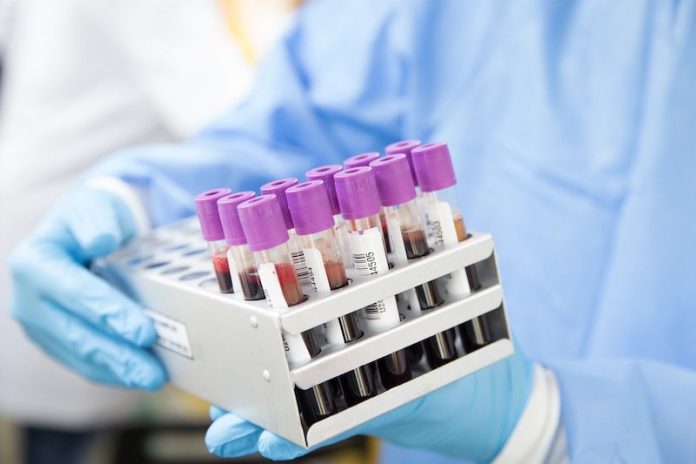
In a new study, researchers have developed a new blood test for neutralizing antibodies against SARS-CoV2, the virus that causes COVID-19.
The surrogate virus neutralization test or cPass differs from other commercially available kits because it allows rapid detection of neutralizing antibodies (NAbs) – the specific antibodies present in the serum of COVID-19 patients that are responsible for clearing the viral infection.
The research was conducted by a team at the Duke-NUS Medical School in Singapore
A feature of the new test is that it can be administered without the need for live biological materials or a biocontainment facility.
Normally, measuring NAbs requires the use of a live virus, cells, highly skilled operators, and complex laboratory procedures that are generally less sensitive and require several days to obtain results.
Conventional virus neutralization tests require live coronaviruses and a biosafety level 3 lab for processing.
This test is based on inactive genetic material called a pseudovirus and does not include any live biological materials.
Starting with a blood or serum sample from a patient, the test is very similar to a standard ELISA (enzyme-linked immunosorbent assay), that is used to scan blood for viruses, infections, and even some kinds of cancer.
The kit includes an ELISA plate pre-coated with the ACE2 cell receptor protein and supply of receptor-binding or spike proteins of coronavirus bound to a color-changing molecule.
If neutralizing antibodies are present in the patient’s sample, the RBD binding will be blocked, resulting in or reduced or no color.
The Diagnostics Development Hub at Singapore’s Agency for Science, Technology and Research (A*STAR), will be producing a pilot batch of the test kit for use in Singapore hospitals.
They plan to share what they learn with local biotech companies for scaled-up production.
The new assay was validated with samples of 77 patients from PROTECT—a multi-center Prospective Study to Detect Novel Pathogens and Characterise Emerging Infections—which was coordinated by Singapore’s National Centre for Infectious Diseases. It was also tested against ferret and rabbit serum.
Preliminary study data shows that the test can discriminate between different types of SARS virus with 100% specificity and 95-100% sensitivity.
Singapore officials said on Friday that the test is sensitive to all antibody isotypes and can be used to determine antibodies in different animal species without any modification, which could aid the development of SARS-CoV-2 vaccines and therapies.
The new test can be conducted within an hour in most research or clinical labs, and may also be adapted to high-throughput and fully automated testing.
The team says this test should be able to help in current COVID-19 investigations, from contact tracing to determining infection rates, herd immunity, and predicted protection by T-cells in blood plasma.
The leader of the study is Linfa Wang, who directs the emerging infectious diseases program at Duke-NUS Medical School.
Copyright © 2020 Knowridge Science Report. All rights reserved.



